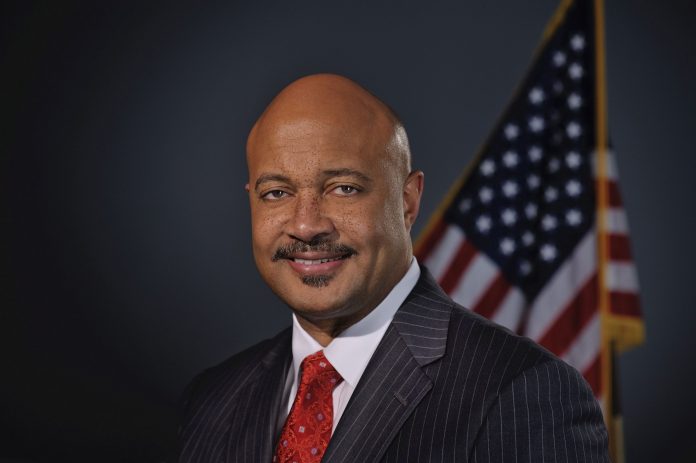IL for www.theindianalawyer.com
Indiana Attorney General Curtis Hill remains defiant despite growing bipartisan pressure for him to resign after three women, including a state lawmaker, went public with claims that he drunkenly groped them at an Indianapolis bar.
Instead, the Republican has launched an aggressive public relations campaign to raise doubts not only about the women’s claims but about the veracity of a confidential legislative memo detailing the allegations against him, which was leaked to the media.
That’s created an increasingly messy election-year situation for the GOP. Should it devolve further, there are several — albeit rarely used — ways the Legislature could oust Hill from office.
Here’s a closer look:
IMPEACHMENT
Indiana’s constitution allows “state officers†to be removed “for crime, incapacity or negligence†either by “impeachment by the House of Representatives, to be tried by the Senate†or by “joint resolution of the General Assembly,†with two-thirds voting in favor.
But there’s debate whether that applies to Hill. That’s because the attorney general — unlike the state auditor, treasurer, and secretary — is not specifically listed as a “state officer†in the constitution. That’s led some to question about whether the constitution’s removal provisions can be used against Hill.
“This is all uncharted territory,†said Joel M. Schumm, an Indiana University Robert H. McKinney School of Law professor. “People can make a variety of arguments about how it should work. I don’t think there is a clear answer.â€
Hill could still be impeached “for any misdemeanor in office†under a different Indiana law. But that would likely require criminal charges or a conviction — a higher threshold than the “incapacity or negligence†standard in the constitution.
FIGHTING BACK
Hill has refused to offer his own version of events from the March 15 party. That didn’t change Wednesday during an unusual news conference where attorney Kevin Betz of Indianapolis law firm Betz & Blevins lashed out at critics on Hill’s behalf for spreading “false and malicious†information.
Betz, who served on Hill’s transition team following his 2016 election, wouldn’t call the women liars. But he suggested their memories could be wrong because there was “alcohol flowing†at the bar.
He declined, however, to say if Hill was drinking that night, though multiple people in the memo alternately described Hill as “intoxicated,†“very intoxicated†and a “really drunk guy.â€
Echoing comments previously made by Hill, Betz pointed to several inconsistencies between the memo and public accounts given by the women. He also threatened to file a defamation lawsuit, suggesting someone with an ax to grind provided false information contained in the document.
In a brief statement, House Speaker Brian Bosma and Senate leader David Long said Hill is the one who needs to answer questions — not lawmakers or legislative staffers.
OTHERS REMOVED FROM OFFICE?
Several Indiana governors have been threatened with impeachment, but no top-level state officials have been removed by impeachment. In 2012, former Secretary of State Charlie White was automatically booted from office under a different state law following a conviction for voter fraud.
In the early days of statehood, however, roughly one dozen low-ranking officials were removed by impeachment, including justices of the peace, court clerks, and one sheriff, according to a history of the Indiana General Assembly.
For the rest of the 1800s, impeachment, which was often used to deal with petty misdeeds, largely fell out of favor because it was time-consuming and expensive.
Then in 1927, a judge and Ku Klux Klan member from Muncie faced an impeachment trial after he took action against a newspaper that published an expose accusing him of misdeeds on the bench.
Judge Clarence W. Dearth was so enraged by the story that he ordered all copies of the paper seized, had the local sheriff arrest 38 newsboys and found the paper’s publisher in contempt, according to the legislative history.
The House voted 93-1 to impeach Dearth. But he was later acquitted after the Senate came up short of the needed two-thirds majority.
ANOTHER POSSIBILITY
Legal observers have suggested that Hill could be removed from office if he is found to have violated the state court’s code of professional conduct.
As attorney general, Hill must have a law license to stay in office. If his law license is taken away, he is no longer eligible for the job, said IU McKinney professor Jennifer A. Drobac.
Under the code of conduct, attorneys are forbidden from committing “a criminal act that reflects adversely on the lawyer’s honesty, trustworthiness or fitness as a lawyer†or behavior “involving dishonesty, fraud, deceit or misrepresentation.â€
Drobac said Hill appears to have committed multiple codes of conduct violations — both through his alleged conduct at the party, as well as in his public statements since, which she characterized as misleading.
“If you assume the complaints are true, which I believe they are — they’ve been well substantiated — then, what he’s done is a violation,†she said.






https://s26.postimg.cc/l9rqs8no9/Curt_Van_Rockin.jpg
Comments are closed.